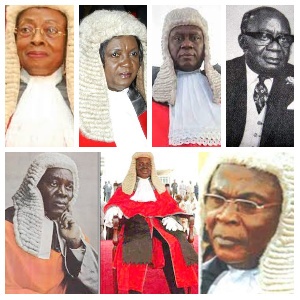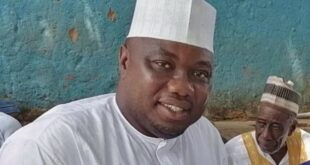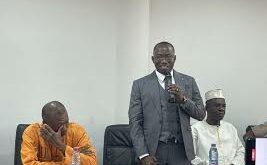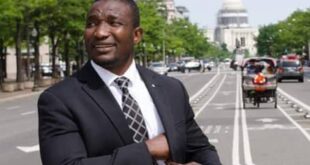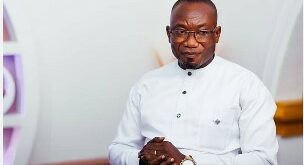From the era where crime was tried by the Queen’s Judicial Officers in conjunction with chiefs, to the establishment of the Supreme Court of the Queen’s forts and settlements on Gold Coast and then the establishment of the various courts; Superior and lower, leadership has been a vital part of the law and its implementation.
The Chief Justice position was established as part of the law system to serve as the chair of specific courts depending on the various eras.
In 1876 for instance, under the Supreme Court Ordinance, the Supreme Court of Judicature for the Gold Coast was constituted of the Chief Justice and not more than four Puisne Judges.
On May 5, 1954, a Judicial Service Commission was set up under the Gold Coast (Constitution) Order in Council which consisted of the Chief Justice and two other judges, the Attorney General and Chairman of the Public Services Commission.
A year before independence, the first Ghanaian Chief Justice was selected; Sir Arku Korsah and a year after, the Supreme Court was divided into High Court and the Court of Appeal under the Court (Amendment) Ordinance 1957 (Number 17 S.2).
However, it wasn’t until September, 1979, under the Third Republic that the Chief Justice was given the highest judicial power.
Article 114 (1) of the Third Republican Constitution made provision for the establishment of the Chief Justice as the Head of Judicial Power in Ghana.
Since 1957, after the administration of Sir Arku Korsah as Chief Justice, there have been 13 other Chief Justices who have served as heads of the Judicial Service.
Here are all the Chief Justices who have headed Ghana’s Judicial Service since independence with brief profile information from graphic.com:
Sir Arku Korsah – 1956 – 1963:
Sir Korsah was born in Saltpond and educated at Mfantsipim School, Fourah Bay College (BA degree in 1915), Durham University and London University (LLB in 1919).
In 1942, Nana Sir Ofori Atta and Sir Korsah were the first two Ghanaians to be appointed to the Legislative Council by the then Governor of the Gold Coast, Sir Alan Burns.
Sir Korsah was one of the 20 founder members of the Ghana Academy of Arts and Sciences in 1959.
After the Kulungugu attack on President Kwame Nkrumah in August 1962, Sir Korsah presided over the trial of five defendants. At the end of that trial, three of the accused persons were found not guilty and this displeased the Nkrumah government. Nkrumah dismissed Sir Korsah as Chief Justice in December 1963.
J. Sarkodee-Addo, Esq – 1964 – 1966:
Justice Julius Sarkodee-Addo was the second Chief Justice of Ghana during the First Republic.
He studied Law at King’s College in London, was admitted to Inner Temple in 1928 and was called to the Bar in 1932. He replaced the first native Ghanaian Chief Justice, Sir Kobina Arku Korsah, in 1964.
He was removed after the coup d’état of February 24, 1966, by the National Liberation Council (NLC) government which was formed after the overthrow of Dr Nkrumah. This coup also marked the end of the First Republic.
Justice Sarkodee-Addo passed on in January 1972 at the Korle Bu Teaching Hospital in Accra.
Edward Akufo-Addo, Esq – 1966 – 1970:
Justice Edward Akufo-Addo was a member of the “Big Six,” leaders of the United Gold Coast Convention (UGCC). He became the Chief Justice and later President of the Republic of Ghana during the second Republic under a Westminster system of government, which had a Prime Minister.
After independence, Justice Akufo-Addo was a Supreme Court Judge and one of the three judges who sat on the treason trial involving Tawia Adamafio, Ako Adjei and three others after the Kulungugu bomb attack on President Kwame Nkrumah. He was dismissed with fellow judges for finding some of the accused persons not guilty.
From 1966 to 1970, he was appointed Chief Justice by the National Liberation Council (NLC) regime. He also chaired the Constitutional Commission which drafted the Second Republican Constitution of 1969.
E.A.L. Bannerman, Esq – 1970 – 1972:
Justice Edmund Alexander Lanquaye Bannerman was the Chief Justice of Ghana between 1970 and 1972. He was removed from office by the National Redemption Council (NRC) after the coup of January 13, 1972. That coup ended the Second Republic of Ghana.
Samuel Azu Crabbe, Esq – 1973 – 1977.
Justice Samuel Azu Crabbe was the fifth Chief Justice of Ghana since it became an independent nation. He was also a president of the National Olympics Committee of Ghana.
Justice Crabbe was born at James Town, a suburb of Accra, and completed his secondary education at Accra Academy in 1939.
He then proceeded to the University College of London, where he graduated with a law degree in 1946. He was called to the English Bar in 1948. While a student, he was quite active in sports and was the captain of a variety of junior and university football, hockey and cricket teams.
Justice Crabbe was later appointed Chairman of the Special Investigation Board (SIB), which was tasked to investigate the June 30, 1982 murder of three judges and an army officer. Their work led to the recommendation that 10 persons be prosecuted.
F.K.Apaloo,Esq – 1977 – 1986:
Justice Frederick Kwasi Apaloo served as Chief Justice of Ghana and later Kenya. He was appointed Ghana’s Chief Justice in 1977, being the sixth person to hold this position since independence.
Justice Apaloo was called to the English Bar in 1950 by the Middle Temple. He later returned to practise law in Ghana. He defended those involved in the Anloga riots following widespread protests against the imposition of taxes by the British colonial administration. This was during the era of the military junta by the Supreme Military Council (SMC).
On resumption of democratic rule under President Hilla Limann in September 1979, the People’s National Party (PNP) government attempted to replace him as incumbent Chief Justice by insisting that he should be vetted for the office he already occupied. A Ghanaian citizen, Amoako Tuffuor, took the issue to the Supreme Court and the presiding judge, Justice E. N. P. Sowah, who succeeded him on his (Apaloo’s) retirement, ruled that Apaloo became Chief Justice in the Third Republic as soon as the 1979 constitution came into force.
He served through the Third Republic and continued after the overthrow of the Limann government on December 31, 1981. Due to his independence, the new military government, the Provisional National Defence Council (PNDC), led by Jerry John Rawlings, also tried unsuccessfully to remove him in 1983. He retired at the age of 65 years in 1986.
Kenya had a vacancy for Chief Justice in 1993, since there was no obvious candidate to fill it, Justice Apaloo was appointed as Chief Justice of Kenya in March 1993 until 1995 when he was replaced by Mr Justice Abdul Majid Cockar.
E.N.P. Sowah, Esq – 1986 – 1990:
Justice E. N. P. Sowah was the Chief Justice of Ghana from 1986 to 1990. He presided over the case brought by Amoako Tuffuor, a Ghanaian citizen, when the PNP government of Dr Hilla Limann attempted to replace Justice Fred Kwasi Apaloo as the Chief Justice of Ghana by vetting him. He ruled in favour of Apaloo to remain the incumbent Chief Justice.
He went on to succeed Apaloo in 1986 and was retained by the PNDC as the Chief Justice beyond the compulsory retirement age, a controversial move at the time.
Philip Edward Archer, Esq – 1991 – 1995:
Justice Philip Edward Archer was the Chief Justice of Ghana between 1991 and 1995. He was the eighth person to hold this position after independence. He was educated at St Peter’s School in Sekondi, Adisadel College, Cape Coast, and the University of Nottingham in England.
Admitted a Solicitor of the Supreme Court of England and Wales in 1957, he returned to Ghana and joined the office of the Registrar-General. He was appointed Registrar-General in 1959 and Judicial Secretary in 1961. He became a High Court Judge in 1964 and a Supreme Court Judge in 1980.
He was Pro-Chancellor and Chairman of the University of Cape Coast Council from 1979 to 1983.
On his retiring as a judge in 1983, he was appointed full-time Chairman of the Law Reform Commission.
Justice Archer became a Member of the Council of State in 1995. In 2000, he was honoured with the Order of the Star of Ghana.
Isaac Kobina Abban, Esq – 1995 – 2001:
Mr Justice Isaac Kobina Donkor Abban was the ninth Chief Justice of Ghana. He was in office between 1995 and 2001.
Edward Kwame Wiredu, Esq – 2001 – 2003:
Justice Edward Kwame Wiredu became the Chief Justice between 2001 and 2003, the 10th since independence. He is noted for introducing the Fast Track High Courts in Ghana, as well as Alternate Dispute Resolution and the Judicial Training Institute (JTI).
George Kingsley Acquah, Esq – 2003 – 2007.
Mr Justice George Kingsley Acquah was appointed Chief Justice on July 4, 2003 but died in office on March 25, 2007.
Mr Justice Acquah, the 23rd Chief Justice of the Supreme Court and the 11th since independence, was in private legal practice in Cape Coast from 1972 until September 19, 1989, when he became a High Court Judge. He worked in Ho in the Volta Region. He became an Appeals Court Judge in June 1994 and then a Supreme Court Judge a year later.
He was awarded the Order of the Star of Ghana (Member) – the highest honour of Ghana – in June 2006.
Georgina Theodora Woode (Mrs) – 2007 – 2017:
Mrs Justice Georgina Theodora Wood was appointed to the Supreme Court on November 12, 2002.
In May 2007, she was nominated for the position of Chief Justice of Ghana. On June 1, 2007, Parliament approved her nomination as the Chief Justice by consensus. This made her the first woman in the history of the country to head the Judiciary and also made her at the time the highest-ranked female in Ghana’s political history. She officially assumed office on June 15, 2007.
She swore in three Presidents: the late President John Evans Atta-Mills in January 2009; then Vice-President John Dramani Mahama upon the death of the President on July 24, 2012, and President-elect Mahama, winner of the December 2012 general election on January 7, 2013.
She retired on June 8, 2017, after 40 years of dedicated service to the country.
In accordance with the provisions of the 1992 Constitution, Justice Wood has since been appointed as a Member of the Council of State. She is the only surviving former Chief Justice.
Sophia Abena Boafoa Akuffo – 2017 – 2019:
Justice Sophia Abena Boafoa Akuffo was on Monday, June 19, 2017, sworn into office as the 13th Chief Justice of the country by President Nana Addo Dankwa Akufo-Addo.
Justice Akuffo has been a Judge of the Supreme Court for two decades.
She obtained her Master’s in Law (LLM) from Havard University in the United States and cut her teeth as a lawyer under Nana Akufo-Addo.
She has been a member of the Governing Committee of the Commonwealth Judicial Education Institute and the Chairperson of the Alternative Dispute Resolution Task Force.
In January 2006 she was elected as one of the first judges of the African Court on Human and Peoples’ Rights, where she once served as its vice-president.
Kwasi Anin Yeboah – 2020 to date:
Justice Kwasi Anin Yeboah was born on May 1953 at Toase in the Ashanti Region of Ghana.
He attended Amaniampong Secondary School and Apam Secondary School and then moved to the University of Ghana and the Ghana School of Law where he graduated in 1981.
After graduating from law school he served as an Assistant State Attorney at the Attorney General Office Koforidua. He proceeded to work as a partner at Afisem chambers at its koforidua Branch.
He was later elected as the Eastern Regional Bar President. He served as a Justice of the Court of Appeal (2003-2008) and the High Court (2002-2003) in Ghana.
Justice Anin Yeboah has also provided his legal experience to football in his country, serving as Chairman of the Appeal Committee at the Ghana Football Association from 2004 to 2008.
He rose to become a member of the adjudicatory chamber of FIFA and he was subsequently in May 2017, appointed as Chairman of the Disciplinary Committee of the 67th FIFA Congress in Bahrain and was also Chairman of the FIFA Ethics Committee.
Source: www.ghanaweb.com
 Home Of Ghana News Ghana News, Entertainment And More
Home Of Ghana News Ghana News, Entertainment And More
